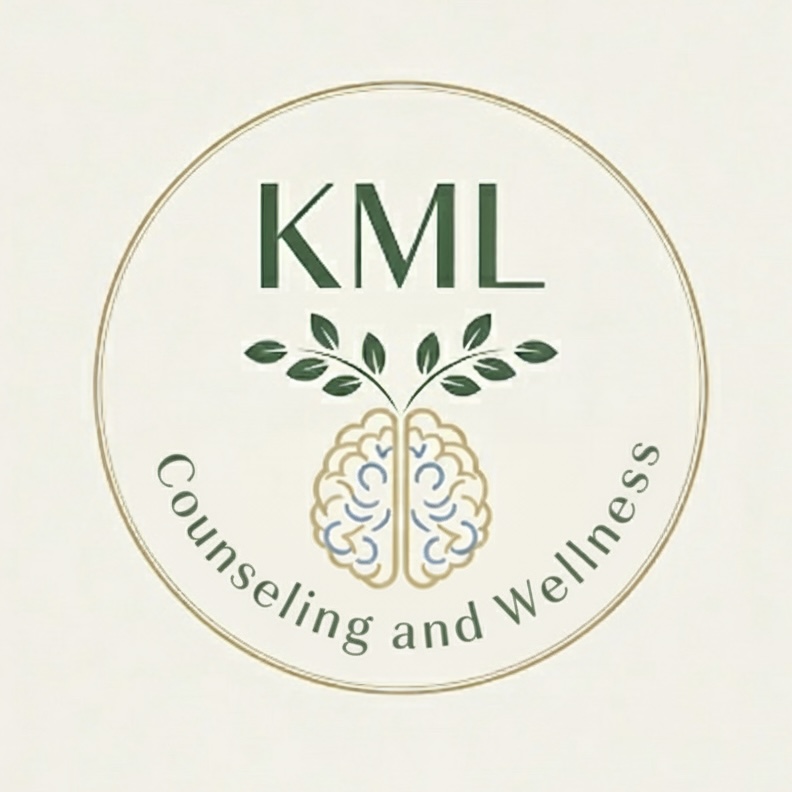Perfectionism and Anxiety: The Myth of "Having It All Together"
- Kendra Lanni, LICSW
- Oct 19, 2025
- 3 min read
Updated: Nov 17, 2025
As a Clinical Social Worker, I’ve noticed a pervasive narrative emerge in our modern world: the pressure to "have it all together." We scroll through curated feeds, witness seemingly effortless success, and internalize the message that we should always be productive and flawlessly competent. The reality, however, is far more complex, and often, far more exhausting. This illusion of perfection fuels three of the most significant challenges I see today: imposter syndrome, burnout, and general anxiety. This piece examines the profound link between perfectionism and anxiety.
The Silent Burden of Perfectionism
Perfectionism, at its core, isn't about striving for excellence; it's about avoiding failure and criticism. It's a heavy mask we wear, constantly adjusting it, fearing that if it slips, we'll be exposed as inadequate or worse—an imposter.
Here’s how Perfectionism plays out:
• The Unseen Effort: You meticulously plan every detail, over-prepare for every meeting, and double-check every email. This isn't just diligence; it’s vigilance: the exhaustive mental and emotional labor of ensuring absolutely no flaw can be found.
• The Fear of Exposure: The constant worry that someone will discover you're not as capable, happy, or successful as you appear. This gnawing anxiety lives just beneath the surface, driving you to work harder, hide more, and ensure you never share your true self.
• The Impossible Standard: You set unrealistic expectations for yourself—and often for others—creating a perpetual cycle of falling short and self-criticism. The finish line keeps moving further away.
This relentless pursuit of flawlessness doesn't just drain your energy; it systematically erodes your inner peace. It’s the fast track to burnout, leaving you depleted, cynical, and utterly ineffective. It's also a major contributor to general anxiety, as your mind is always on high alert, scanning for and anticipating potential threats to your image.
The Liberation of Dropping the Mask: Letting Go of Perfectionism
Imagine, for a moment, the relief of letting go. Of shedding that heavy, carefully constructed mask. This is where vulnerability steps in—not as a weakness, but as your greatest strength.
Vulnerability is simply being seen as you are, imperfections and all. It’s acknowledging your struggles, admitting you don’t have all the answers, and allowing yourself to be human.
Here’s what happens when you embrace vulnerability:
• Authentic Connection: When you show your true self, you invite others to do the same. This fosters deeper, more meaningful connections, built on trust and empathy.
• Reduced Anxiety & Stress: The energy you once spent maintaining an impossible facade is freed up. You stop constantly monitoring yourself, allowing your nervous system to calm down. This is the antidote to the constant vigilance of anxiety.
• Increased Resilience: When you're not afraid of making mistakes, you become more resilient. You learn faster, adapt more readily, and bounce back quicker, knowing that setbacks—and others witnessing those setbacks— are part of growth, not proof of failure.
• Self-Compassion: Dropping the mask allows you to extend the same kindness and understanding to yourself that you would to a friend. You move from self-criticism to self-compassion, which is vital for healing, growth, and emotion regulation.
• Innovation & Creativity: Perfectionism stifles innovation, sticking with the tried and true feels safe and prevents your mask from slipping off. When you're open to imperfection, you're open to experimentation, learning, and new ideas—all essential for personal and professional growth.
Taking the First Step: Embracing Imperfection
Embracing vulnerability doesn't mean airing all your deepest secrets to strangers. It starts small:
• Acknowledge Your Struggle: Internally, admit when something is hard. "This is challenging." "I don't know the answer." “I don’t like doing this.”
• Share a Minor Imperfection: With a trusted friend or family member, share a small struggle or a moment where you fell short of perfect. Notice how it feels.
• Set Realistic Expectations: Give yourself permission to do "good enough" instead of striving for "perfect" in certain areas. Remind yourself that “good enough” is often far and above what most people aim to do.
• Seek Support: If the thought of dropping the mask feels terrifying, or if perfectionism and anxiety are deeply ingrained, that's okay. A therapist can provide a safe space and tools to explore these patterns and guide you towards greater self-acceptance.
In a world that constantly demands we "have it all together," choosing vulnerability and letting go of perfectionism is an act of quiet rebellion and profound strength. It’s the path to genuine well-being, authentic connection, and a life well-lived. As Clinical Social Worker, I can tell you: the relief of dropping the mask is truly liberating. Click here to get started.



